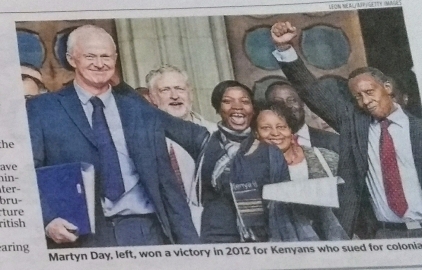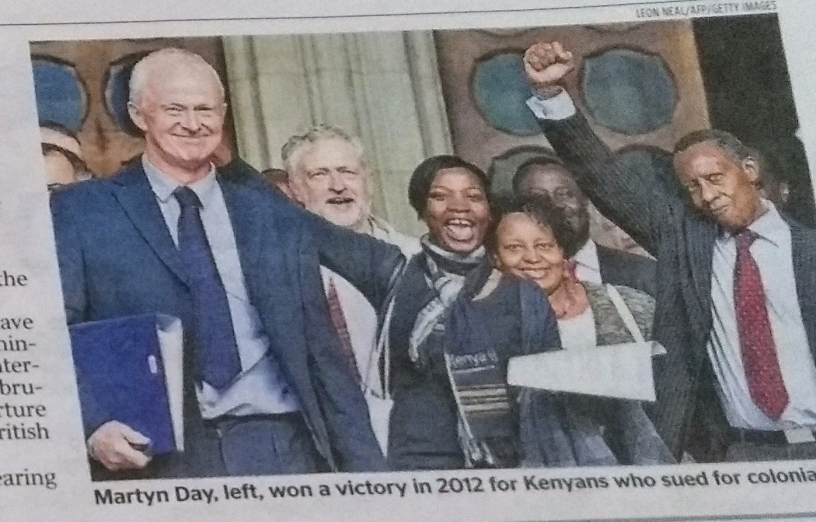I picked up a free copy of The Times before boarding a plane for New York this morning (25 April), not my newspaper of choice, but the choice was indeed very limited. “Yes Murdoch owns it but it is still a proper newspaper, not a tabloid”, I said to myself. Well, the language is more polished and the headlines marginally less shouty, but, as I quickly realised, one can tell the position of the newspaper on Brexit and the forthcoming election just by glancing at the front-page. Two headlines: Brussels to hit Britain with a €2 billion fine for custom fraud; Corbyn endorsed by two far-left organisations. Interestingly, while the emphasis in heading and subheading of the first piece is on yet another unreasonable demand from the EU that will impact on the Brexit negotiation, the body of the article (at page 6) reveals evidence of a ‘huge trade fraud’ run by Chinese gangs which somehow manage to have their imported goods undervalued for tax purposes by the UK customs (‘a soft gateway’). So not that unreasonable it turns out.
As for the Corbyn-related story, the unsought endorsement of two Communist organisations counting a handful of members become evidence of a Corbyn-led Communist plot to turn Britain into the Soviet Union.
At a slightly closer inspection (ie before I put it down and began to write this on my phone) it is not only a front-page thing, it runs through almost every page hardly under the surface. At page 3, for example, The Times runs a long story about a young female entrepreneur using the global appeal of the English language to make money, not incidentally she is a photogenic young graduate – one of the core cohorts that supported Remain and need to be allured into Brexit. Lesson for the readers: there is a world of opportunities for young people outside the EU. At page 5, the top article is about a leading law firm that ‘reaped nearly £10 million in fees from claim of torture against British troops  in Iraq’. Interesting story, he all know how much the Brexitiers dislike human rights, so the story fits beautifully under the rubric 1) ‘abuses of the human rights protection system’ and 2) ‘our troops are always a force for good’. But there is also story in the story. The photo accompanying the piece in fact has nothing to do with the Iraq case. The caption says: “Martyn Day, left, won a victory in 2012 for Kenyans who sued for colonial abuses”. So neither Iraqi civilians, not British troops in the photo, but instead we find the face of Jeremy Corbyn right in the middle. Interestingly, whoever wrote the caption didn’t seem to recognise him.
in Iraq’. Interesting story, he all know how much the Brexitiers dislike human rights, so the story fits beautifully under the rubric 1) ‘abuses of the human rights protection system’ and 2) ‘our troops are always a force for good’. But there is also story in the story. The photo accompanying the piece in fact has nothing to do with the Iraq case. The caption says: “Martyn Day, left, won a victory in 2012 for Kenyans who sued for colonial abuses”. So neither Iraqi civilians, not British troops in the photo, but instead we find the face of Jeremy Corbyn right in the middle. Interestingly, whoever wrote the caption didn’t seem to recognise him.

Reblogged this on Eurochildren.